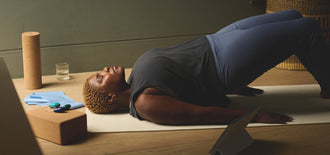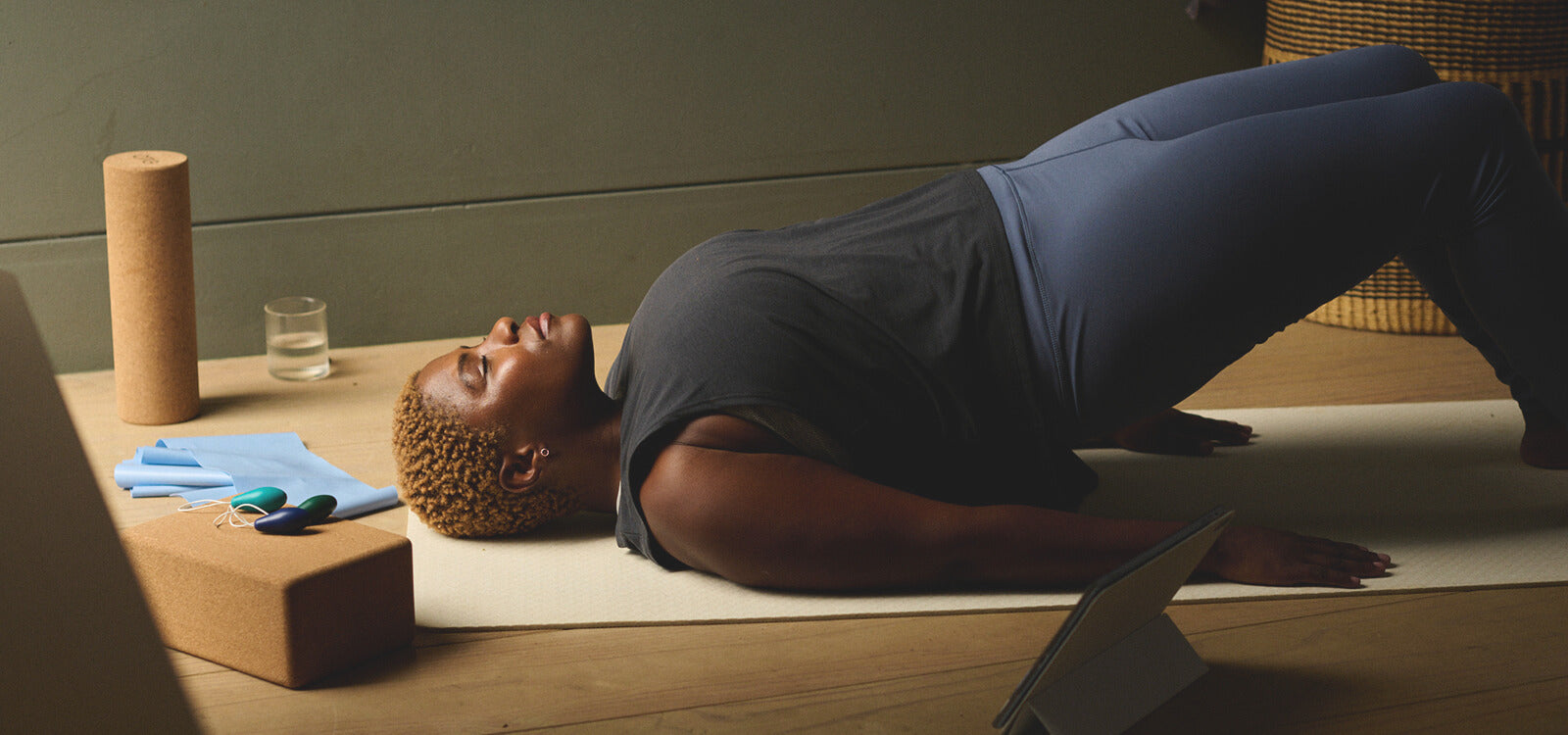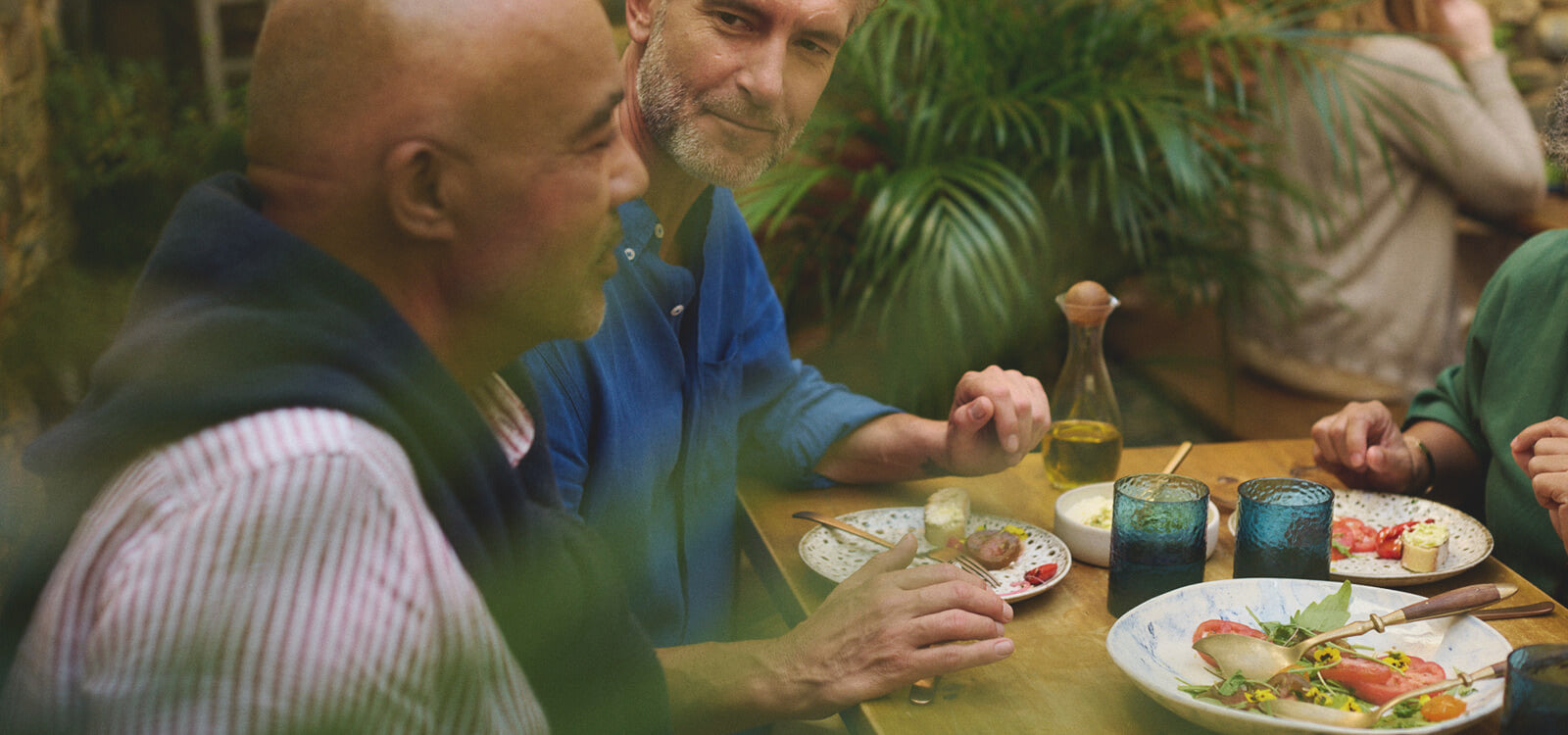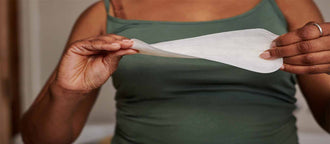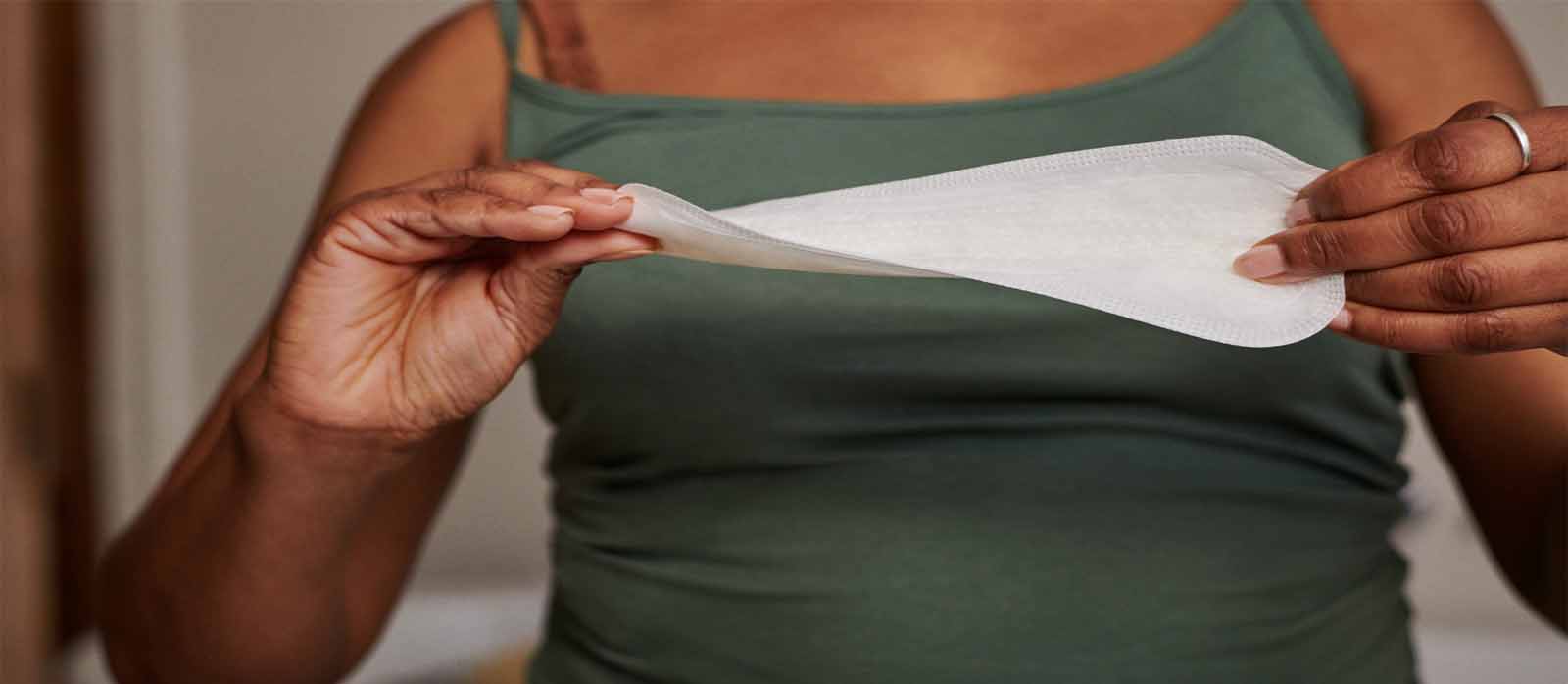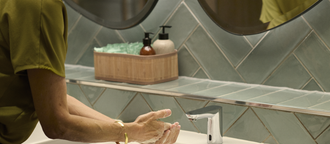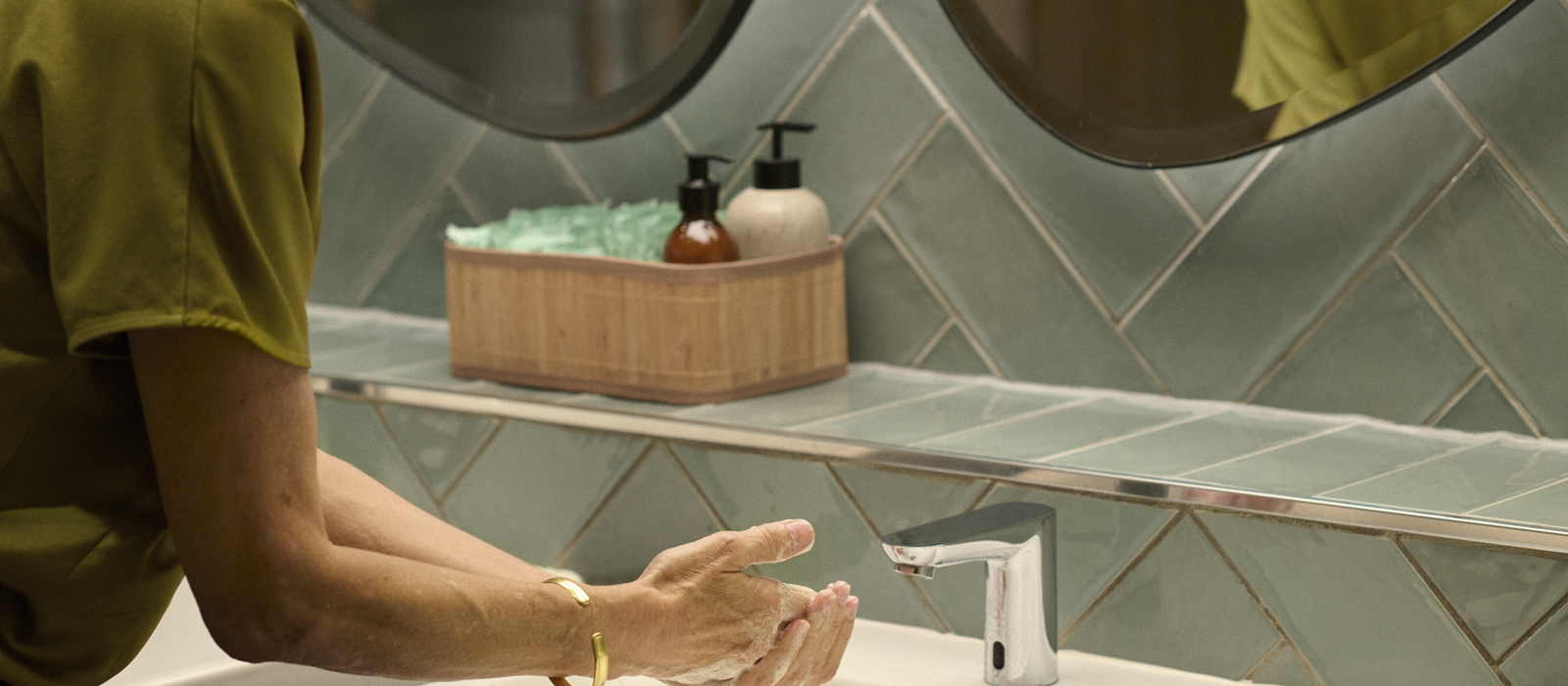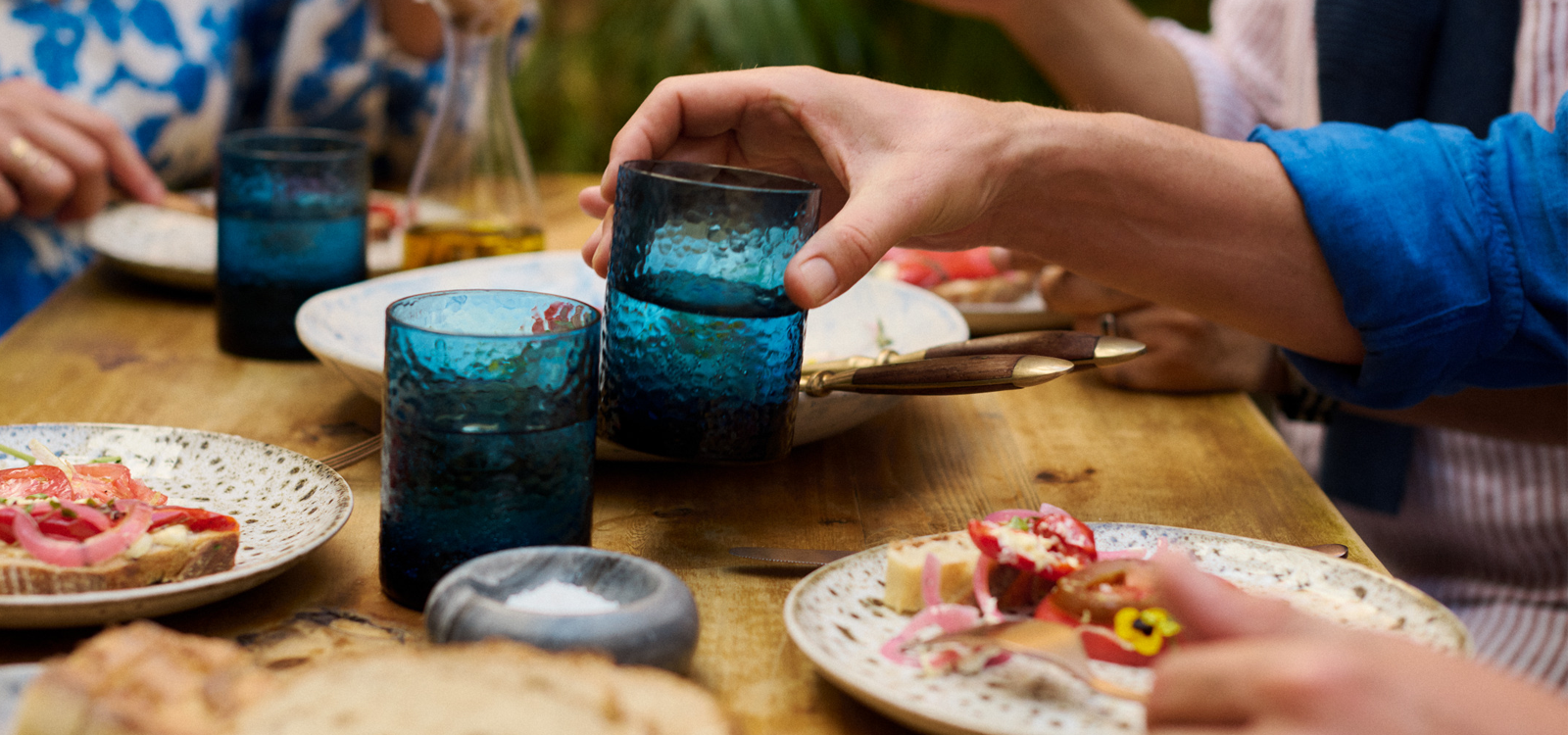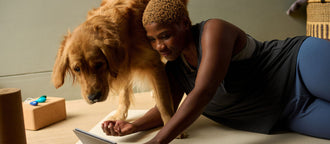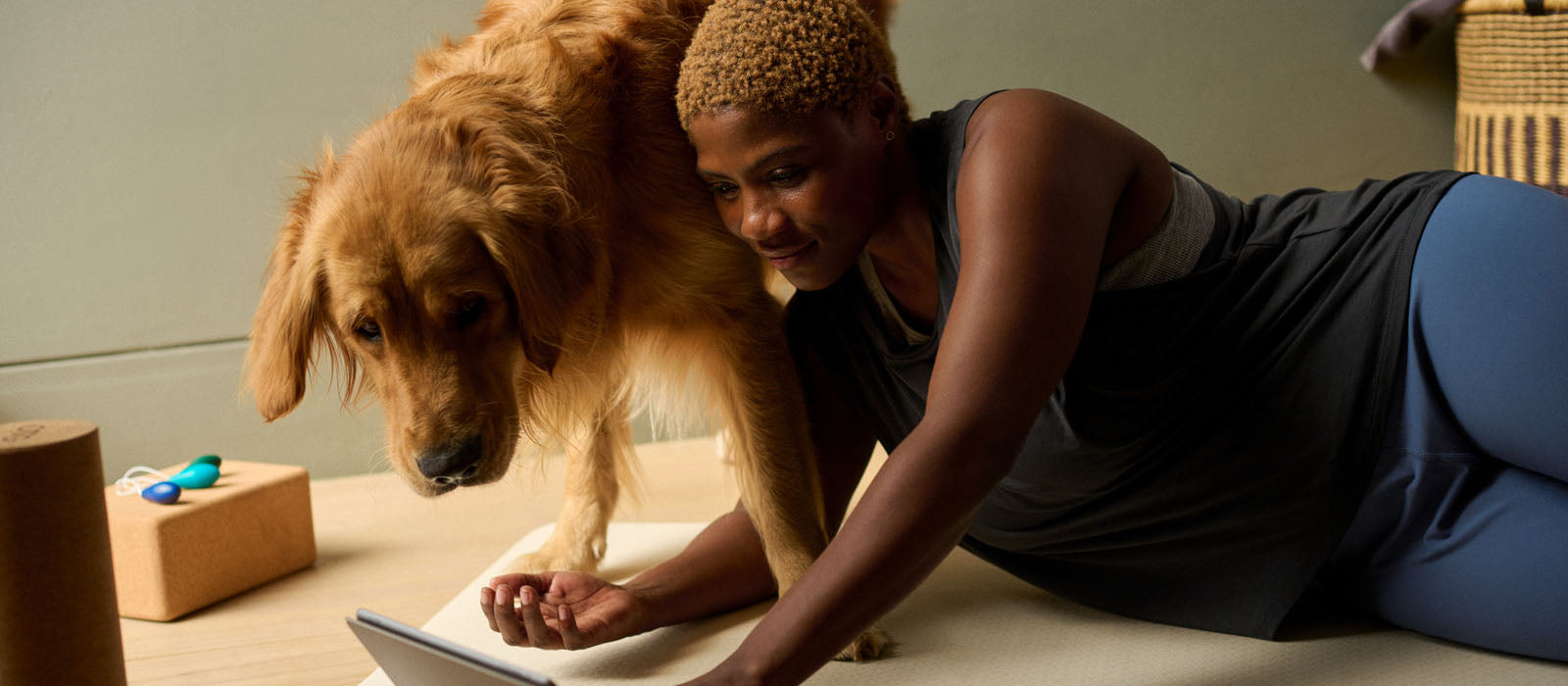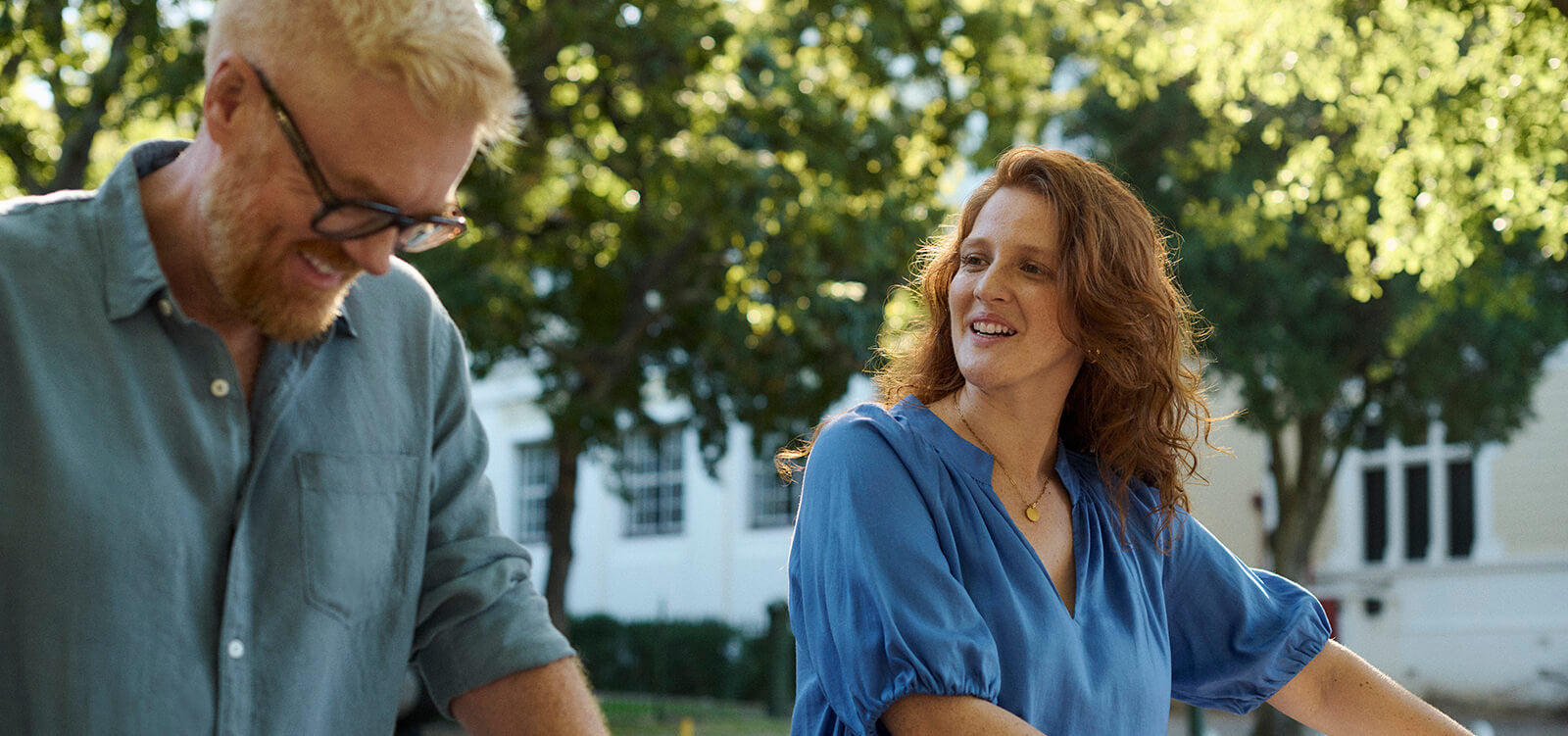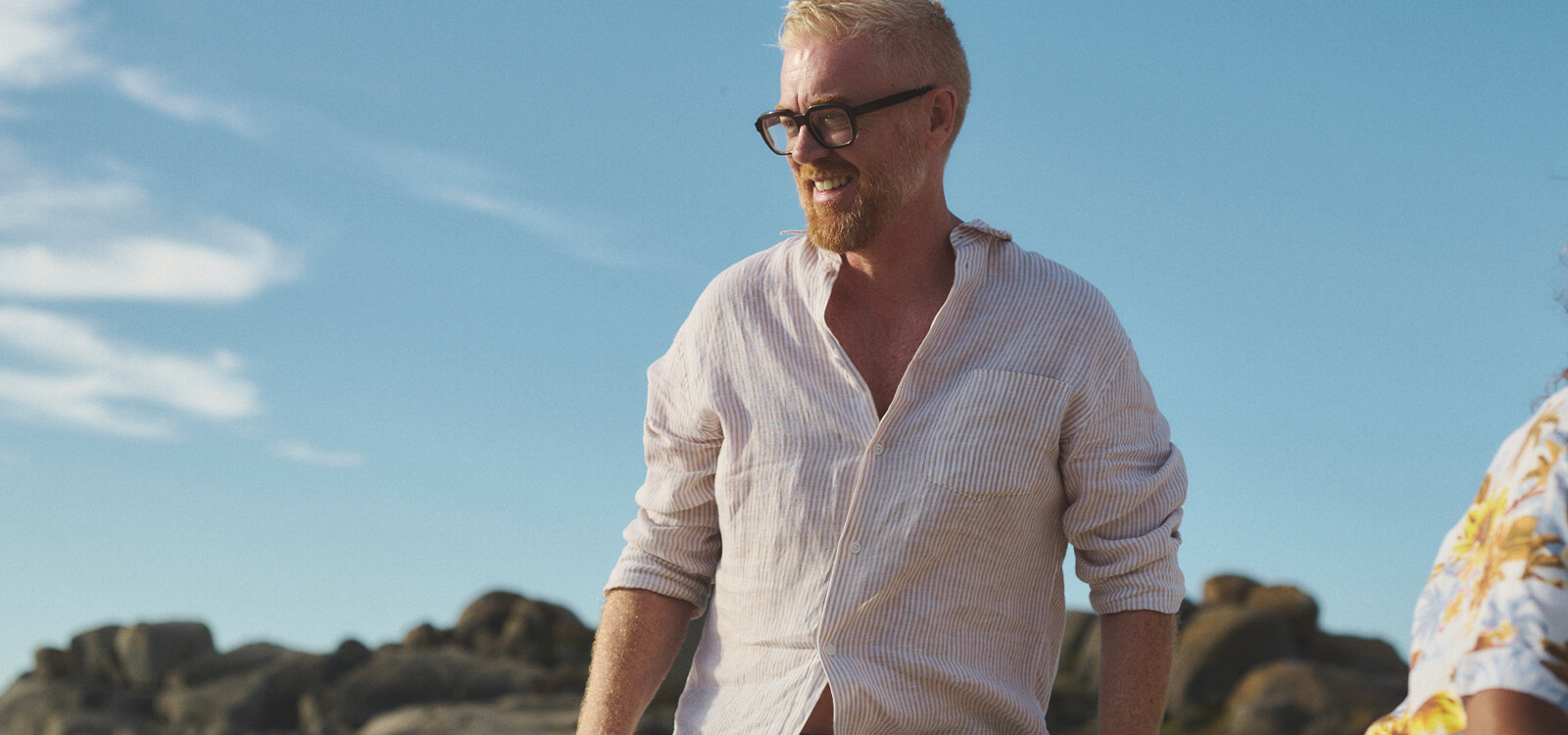Jul 16, 2025
If you’re living with incontinence, you may have already tried some treatments to help ease your condition. You may have also heard mentions of natural remedies along the way and may be wondering if they actually work.
And that's where we come in; let’s take a closer look at some natural incontinence remedies and understand how they can help to manage your condition.
What is Incontinence and How Can Natural Remedies Help?
Bladder weakness or urinary incontinence can evoke feelings of frustration and affect your confidence, making it easy to feel alone. But you're far from it; in fact, over 60% of women1 and 19.3% of men2 in the U.S. live with incontinence.
Incontinence is when urine leaks out accidentally. It happens when your bladder doesn't fully control when to release urine.3 The cause depends on the type of incontinence, and while there are several types, here are the main ones:
Urge incontinence (overactive bladder): when you feel the intense desire to pee but can't make it to the toilet in time.3
Stress Incontinence: leaks happen when there's pressure on the bladder, like when you:3
- Cough
- Sneeze
- Exercise
- Lift heavy objects
Mixed incontinence: it is a mix of both stress and urge incontinence.3
Overflow incontinence: your bladder doesn't empty all the way, so small leaks happen later.3
Functional incontinence: when health issues affect how your body or brain works, it’s hard to get to the toilet on time.3 Examples of these conditions include:
- Stroke
- Alzheimer's
- Dementia
- Arthritis
If you’re experiencing incontinence, we recommend speaking to a doctor to help you understand which type of incontinence you’re experiencing, and what you can do to manage it.
A doctor may suggest lifestyle changes, medication, or sometimes, surgery4 to help manage the condition. But treatment will depend on the following factors:4
- The type of incontinence
- How intense the symptoms are
- What's causing it
Many people are encouraged to try simple lifestyle changes before turning to surgery or medication if their symptoms continue.4
Remember that small changes can make a big difference, giving you that boost of confidence you need to live life well.
If you’re still wondering if natural is the way to go, let’s look at some practical ways of natural bladder treatment.
Should You Avoid Heavy Lifting to Prevent Leaks?
Heavy lifting can potentially lead to leakage, especially if you're not using the proper technique to lift heavy objects.5 It could strain your back, weaken your pelvic floor muscles, and increase your risk of injury.5
Poor lifting form, like bending from the waist or holding your breath, increases pressure in your abdomen.6 That pressure pushes down on the bladder and pelvic floor muscles, which are already weak, making leaks more likely to occur. 6
Proper lifting techniques not only protect your body but could also help prevent leaks.
Here are some simple techniques for safer lifts:7
- Stand close to the object
- Place your feet shoulder-width apart for better balance
- Bend at your hips and knees, not your waist
- Tighten your pelvic floor or core before lifting
- Lift with your legs, not your back
- Avoid holding your breath
- Don't twist your body while lifting
You don’t have to master this technique right away, but with regular practice, safe lifting will become second nature. Over time, you’ll be protecting your bladder, avoiding leaks, and building a stronger core and pelvic floor.
Can Losing Weight Really Help with Incontinence?
Carrying extra weight could put added pressure on your bladder and pelvic floor, and in return, this pressure could lead to or worsen urinary incontinence.8 It could also weaken the muscles that support your bladder and urethra (the tube that carries urine out), making leaks more likely to occur.8
Losing even a small amount of weight can ease pressure on the bladder and improve symptoms.8 But remember, it's important to take it slow and steady.
Here are five tips to get you started on your weight loss journey:
- Set a realistic goal to lose weight. A steady pace is safer and more sustainable.9
- Eat whole and nourishing foods: fill your plate with fiber-rich vegetables, lean proteins, fruits, and whole grains.9 They support digestion and help you feel full. If you’re unsure, talk to a dietitian for a personalized plan.
- Eat smaller portions, slow down, and avoid eating from boredom or stress.9
- Move more: regular movement helps with weight loss and supports bladder health. Choose low-impact, bladder-friendly exercises like:9
- Brisk walking
- Swimming
- Cycling
- Dancing
- Boxing
- Pelvic floor exercise (Kegel)
- Remember, weight loss is a journey. There will be hard days. But each small step you take supports a stronger pelvic floor, a lighter bladder load, and more confident days ahead.
Be careful when doing high-impact workouts or exercises that strain your core, such as crunches or heavy weightlifting.10
Is Alcohol Making Your Bladder Problems Worse?
A drink may feel relaxing, but alcohol can be tough on your bladder, especially if you already have incontinence.11
Here’s why:
- It acts as a diuretic, meaning it makes you pee more often, and with more urgency.11
- It weakens the pelvic floor over time, especially with frequent or heavy drinking.11 If your pelvic floor is already weak, alcohol can make things worse.
- It irritates the bladder lining, which can trigger leaks or worsen existing symptoms.12
This doesn’t mean you have to give up alcohol entirely. Rather, it means making mindful choices can help protect your bladder. Here are some smart strategies for drinking with incontinence:12
- Drink in moderation: pay attention to how your body responds to alcohol.
- Track your symptoms: keeping a note of what you drink and how you feel after helps you to spot triggers.
- Stay hydrated: sipping water alongside alcohol can ease bladder irritation.
- Try swapping out alcohol for alternatives like:
- Mocktails made with fresh herbs and fruit
- Sparkling or flavored water
- Bladder-friendly teas like peppermint or chamomile
Could Quitting Smoking Ease Bladder Leaks?
Smoking and cancer often go hand in hand, but smoking and bladder leaks? That’s a lesser-known connection. Many people don’t realize the two can be linked, but here’s how smoking might affect your urinary health:13
First, chronic coughing (the smoker’s cough) increases pressure in your abdomen. This pressure pushes down on your pelvic floor muscles, weakening them over time and making leaks more likely.
Second, tobacco chemicals could harm your bladder lining. This damage could lead to irritation, urge incontinence, and even bladder control issues over time.
Hence, a smoker with incontinence could worsen their symptoms. Quitting smoking can ease symptoms and strengthen your bladder control.13 It’s not easy, but support is out there, and taking the first step makes a big difference.
Here are some helpful tools to get you started:
- Cut back gradually: reduce the number of cigarettes you smoke each day.13
- Use nicotine replacement options, like:13
- Patches
- Gum
- Inhalers
- Lozenges
- Sprays
- Try Cognitive Behavioral Therapy (CBT) with a specialist: this can help you manage cravings and triggers.14
You could also connect with support groups or a quit-smoking helpline in your area: they’re usually free and non-judgmental, and a healthcare provider should be able to give you the details of a local group or program.
Remember, be kind to yourself during the process. Slip-ups happen, but each day without smoking is a win; for your bladder, lungs, and whole body.
Are You Drinking Enough Water to Help Your Bladder?
When you're dealing with bladder leaks, it's easy to think cutting back on water will help. But drinking less water could backfire.15
When you're dehydrated, your urine becomes dark and concentrated. This concentrated urine can irritate the bladder lining, making you feel the urge to pee more often, and more urgently.15
Instead of drinking less water, aim for steady, balanced hydration throughout the day. Here's a simple tip to check your hydration levels: check your pee color.15
- Dark yellow = You’re likely dehydrated.
- Very clear = You might be drinking too much.
- Pale yellow to light amber = You're on track.
While staying hydrated is key, drinking too much at once, especially before bed, can make leaks more likely.15 Sip water consistently during the day and avoid heavy fluids right before sleep.15
Hydration supports a happy bladder. Don’t fear the water, just pace it smartly.
Does Caffeine Trigger Your Bladder Leaks?
Caffeine has three effects that can bother your bladder: it’s a stimulant, irritant, and diuretic.16 These all make you feel the urge to pee more often and more suddenly. A recent study has shown that incontinence could become worse, especially after more than two cups of brew a day.16
Not everyone reacts the same to caffeine. Pay attention to how your body feels after drinking coffee. If you notice a pattern, switch to decaf or try bladder-friendly alternatives like chamomile or peppermint tea.12
What Foods Support Better Bladder Health?
What you eat can either soothe your bladder or set it off. Choosing bladder-friendly foods gives your body the support it needs, while cutting out known triggers can help prevent flare-ups.17
Show your bladder some love by adding these picks to your next grocery list. They are rich in magnesium, omega-3 fatty acids, and fiber; nutrients that support muscle function, reduce inflammation, and promote smooth digestion.17
Consider adding these foods to your shopping basket:
- Cranberries and blueberries: full of antioxidants and gentle on the bladder.
- Green beans, cauliflower, and winter squash
- Skinless chicken, egg whites, and fish like sea bass: lean proteins that fuel without flare.
- Whole grains like brown rice, oats, and quinoa: fiber-packed and digestion-friendly.
- Macadamia nuts: a buttery snack that’s bladder-safe and anti-inflammatory.
- And while you're at it, skip these bladder bullies:17
- Carbonated drinks (energy drinks, soda)
- Spicy foods (like hot peppers or heavy seasoning blends)
- Acidic foods (think tomatoes, citrus fruits, vinegar-heavy dressings)
If you’re not sure what bothers your bladder, try a food journal. Track what you eat and how your body reacts.18 This simple habit can reveal food triggers, and help you feel more in control.
Check out this article for information on which foods show your bladder and kidney love.
Do Pelvic Floor Exercises Work If You Do Them Daily?
Your pelvic floor muscles support your bladder and bowel. When these muscles weaken, leaks happen, but you can train them back into shape.19
Pelvic floor exercises (also called Kegels) help you regain control by strengthening the muscles that hold in urine.19 These workouts are simple, discreet, and work for everyone.
Remember, consistency is key. Like any workout, results come with regular practice. It only takes a few minutes a day but doing them right matters.
If you want to start doing pelvic floor exercises and you’re stuck, you can try out our video guides on how to do these exercises, or you could chat to a physiotherapist that could help to give you some guidance and exercises to do.
How Does Bladder Training Actually Work?
Bladder training helps to stretch the time between bathroom visits so your bladder can hold more urine without urgent leaks or discomfort.
Here’s how it works:20
- Know your bathroom schedule, so you can adjust it as you train. An effective way to keep track is using a bladder diary.
- Delay peeing gradually. Start by holding off for just five minutes when you feel the urge. Over time, slowly increase the wait until you can go 3–4 hours between visits.
- Schedule bathroom breaks. Set fixed times to pee, whether you feel the urge. This keeps your bladder on a routine.
- Track what you drink. Try to drink similar amounts each day and avoid drinking large amounts all at once. Use a journal or app to log your fluid intake and bathroom visits.
It takes patience, but it pays off. With practice, bladder training can calm urgency, reduce leaks, and improve your confidence in everyday life.20 We’ve got some great tips for bladder training, why don’t you check it out?
Can Herbal Remedies Help with Incontinence?
Looking for herbal remedies for bladder leaks? Many people turn to traditional herbs to manage symptoms like urgency or leakage.21
While these natural options may offer relief, it’s crucial to talk to your doctor first, especially if you're on any medications or have a health condition. Some herbs could interact with prescriptions and cause unexpected side effects.21
For some more information on herbal remedies, you can read what we have to say.
Do Essential Oils Make Any Difference for Bladder Issues?
Some people explore aromatherapy to ease stress-related bladder urgency. While there is little research backing, certain essential oils could promote relaxation, helping with stress incontinence.22
One option you could try is clary sage (Salvia sclarea). It relaxes the smooth muscles, including those in the bladder, which may help reduce leaks triggered by stress.22
You can try aromatherapy by:
- Inhaling clary sage using a diffuser
- Diluting it for a gentle abdominal massage
This oil may support stress relief but is not a cure. Always do a patch test and check with your healthcare provider, especially if you’re pregnant, breastfeeding, or have a medical condition.
Is Acupuncture Worth Trying for Bladder Leaks?
Acupuncture is a therapy that involves inserting very thin needles into specific points on the body to support healing and balance.
While some small studies show that acupuncture may ease symptoms, especially those related to an overactive bladder,23 results vary, and more studies are needed. It may work when combined with other treatments such as:
- Medication
- Pelvic floor exercises
- Bladder training
If you're curious about trying acupuncture, speak with your doctor to see if it fits your care plan.
What’s Behavioral Therapy and How Can it Help Your Bladder?
Cognitive Behavioral Therapy (CBT) is a type of talk therapy that helps you change the way you think and respond to certain situations.24 It’s often used to treat panic disorder and depression, and it could also help manage bladder leaks caused by stress or an overactive bladder.24
CBT can teach you behavioral techniques that help you feel more in control. This therapy may include:24
- Delaying urination to train your bladder
- Restricting water and coffee intake
- Using calming techniques like deep breathing or distraction to manage strong urge
Managing Incontinence Symptoms is not a One-Size-Fits-All Approach
Remember, you're not alone in looking for natural ways to manage symptoms. Simple habits, from food swaps to mindful movement, can support holistic urinary health.
These everyday steps help you feel more in control, with no harsh changes. And if you are unsure about the next steps to take, speak to a medical professional to help guide you get your confidence back.
References
1. Patel UJ, Godecker AL, Giles DL, Brown HW. Updated Prevalence of Urinary Incontinence in Women: 2015–2018 National Population-Based Survey Data. Female Pelvic Medicine & Reconstructive Surgery. 2022 Jan 12;28(4):181–7.
2. Cao C, Christie Yu Zhang, Sriskandarajah C, Xu T, Gotto G, Sutcliffe S, et al. Trends and Racial Disparities in the Prevalence of Urinary Incontinence Among Men in the USA, 2001–2020. European Urology Focus. 2022 Nov 1;8(6):1758–67.
3. Mayo Clinic. Urinary Incontinence - Symptoms and Causes [Internet]. Mayo Clinic. 2023. Available from: https://www.mayoclinic.org/diseases-conditions/urinary-incontinence/symptoms-causes/syc-20352808
4. Mayo Clinic. Urinary incontinence - Diagnosis and treatment - Mayo Clinic [Internet]. Mayoclinic.org. 2025 [cited 2025 May 2]. Available from: https://www.mayoclinic.org/diseases-conditions/urinary-incontinence/diagnosis-treatment/drc-20352814?
5. NHS website. 10 ways to stop leaks [Internet]. nhs.uk. 2018 [cited 2025 May 7]. Available from: https://www.nhs.uk/conditions/urinary-incontinence/10-ways-to-stop-leaks
6. Mayo Clinic. Stress incontinence - Symptoms and causes [Internet]. Mayo Clinic. 2017. Available from: https://www.mayoclinic.org/diseases-conditions/stress-incontinence/symptoms-causes/syc-20355727
7. CSUCHICO. SAFE LIFTING TECHNIQUES SAFE LIFTING TECHNIQUES Safety Is As Simple As ABC… Always Be Careful COMMON LIFTING PROBLEMS: SOLUTIONS [Internet]. [cited 2025 May 8]. Available from: https://www.csuchico.edu/ehs/_assets/documents/lifting-techniques.pdf
8. Corey Whelan. Is There a Link Between Obesity and Overactive Bladder? [Internet]. Healthline. 2023. Available from: https://www.healthline.com/health/overactive-bladder/obesity-and-overactive-bladder#does-obesity-cause-oab
9. MayoClinic. 6 proven strategies for weight-loss success [Internet]. Mayo Clinic. 2025 [cited 2025 May 8]. Available from: https://www.mayoclinic.org/healthy-lifestyle/weight-loss/in-depth/weight-loss/art-20047752
10. Godman H. Exercises that go easy on the bladder - Harvard Health [Internet]. Harvard Health. 2025 [cited 2025 May 8]. Available from: https://www.health.harvard.edu/exercise-and-fitness/exercises-that-go-easy-on-the-bladder
11. Urology Clinics. The Sobering Truth: How Alcohol Impacts Urological Health [Internet]. Urology Clinics of North Texas. 2024. Available from: https://urologyclinics.com/blog/the-sobering-truth-how-alcohol-impacts-urological-health/
12. Alliance urology. Overactive Bladder and Alcohol: What You Need to Know [Internet]. allianceurology.com. Available from: https://allianceurology.com/overactive-bladder-and-alcohol/
13. Incontinence.co.uk. Smoking and Incontinence: The Surprising Link [Internet]. Incontinence UK. 2018. Available from: https://www.incontinence.co.uk/smoking-and-incontinence-the-surprising-link
14. Vinci C. Cognitive Behavioral and Mindfulness-Based Interventions for Smoking Cessation: A Review of the Recent Literature. Current Oncology Reports [Internet]. 2020 May 16;22(6):58. Available from: https://www.ncbi.nlm.nih.gov/pmc/articles/PMC7874528/
15. pelvisawareness_admin. Water Intake & Incontinence: How Much Should I Be Drinking? - Pelvic Awareness Project [Internet]. Pelvic Awareness Project. 2021 [cited 2025 May 7]. Available from: https://pelvicawarenessproject.org/water-intake-incontinence-how-much-should-i-be-drinking/
16. Anand Shridharani. Does caffeine REALLY cause overactive bladder? [Internet]. UT Erlanger Urology. 2016. Available from: https://www.uturology.com/2016/05/does-caffeine-really-cause-overactive-bladder/
17. Urology of Greater Atlanta. Best 10 Foods for Bladder Health and 4 to Stay Away From [Internet]. Ugatl.com. Urology of Greater Atlanta; 2021 [cited 2025 May 7]. Available from: https://ugatl.com/blog/best-10-foods-for-bladder-health/
18. Corey Whelan. Overactive Bladder Diet: What to Eat and What to Avoid [Internet]. Healthline. 2017. Available from: https://www.healthline.com/health/overactive-bladder/overactive-bladder-diet
19. Warner L. Pelvic floor exercises: Help for incontinence, sexual health, and more - Harvard Health [Internet]. Harvard Health. 2024. Available from: https://www.health.harvard.edu/staying-healthy/pelvic-floor-exercises-help-for-incontinence-sexual-health-and-more
20. Watson S. Bladder Training Techniques [Internet]. WebMD. 2023. Available from: https://www.webmd.com/urinary-incontinence-oab/bladder-training-techniques
21. Liao S. Herbal Remedies for Overactive Bladder [Internet]. WebMD. 2016. Available from: https://www.webmd.com/urinary-incontinence-oab/features/herbal-remedies-overactive-bladder
22. Seol GH, Lee YH, Kang P, You JH, Park M, Min SS. Randomized Controlled Trial for Salvia sclarea or Lavandula angustifolia: Differential Effects on Blood Pressure in Female Patients with Urinary Incontinence Undergoing Urodynamic Examination. The Journal of Alternative and Complementary Medicine. 2013 Jul;19(7):664–70.
23. Lee JJ, Heo JW, Choi TY, Ji Hee Jun, Myeong Soo Lee, Kim JI. Acupuncture for the treatment of overactive bladder: A systematic review and meta-analysis. Frontiers in neurology. 2023 Jan 12;13(9878288).
24. Funada S, Watanabe N, Goto T, Negoro H, Akamatsu S, Ueno K, et al. Cognitive behavioral therapy for overactive bladder in women: study protocol for a randomized controlled trial. BMC Urology. 2020 Aug 20;20(1).








